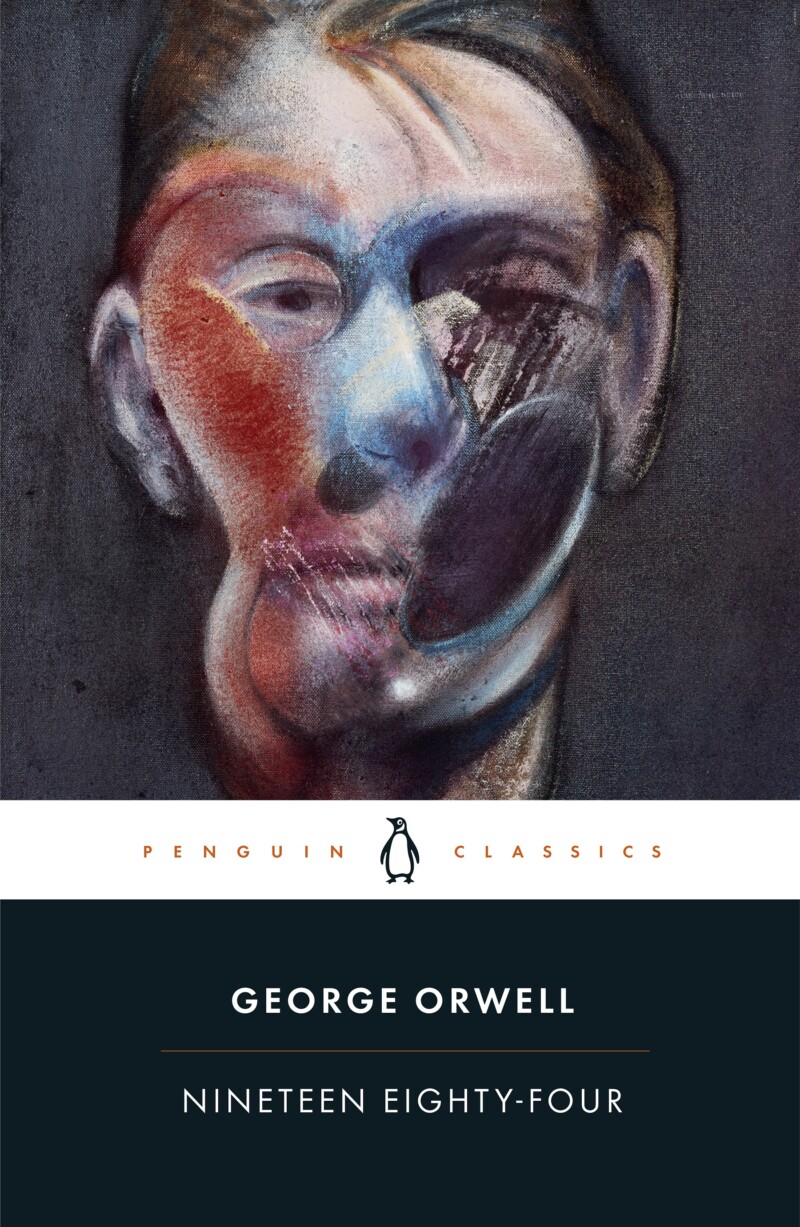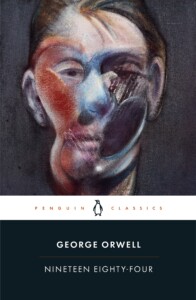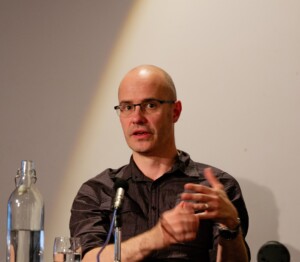Windows Nicholas Herrmann

Share this
Lately, I’ve been questioning my worth. Writing is my craft, my passion, the way I make a living. It’s the way I interpret the world: I edit experiences into paragraphs, remember things in sentences. But doubt has been creeping in.
Day after day, as the environment collapses, society splinters, and Britain insistently walls itself in, I sit here and scribble. Friends take to the streets in protest, organising rebellions, while I pitch an article or work on a manuscript, agonising over commas. Is there a place for artistic endeavour in a time of crisis? Or is it pointless, dangerous, irresponsible? It’s getting harder to shake the feeling that I’ve locked myself in the loft while the street’s on fire. Why do I write?
It’s at times like this – when my conviction is in pieces – that I turn to Orwell. More than any other writer, his work has been a constant in my life – a literary lodestar. He was there when I started at seventeen, after picking up an Oxfam copy of Down and Out in Paris and London. I had recently fallen under the spell of On the Road by Jack Kerouac, an ecstatic sermon about drifting across America, and Orwell’s non-fiction account of the years he spent in poverty while searching for success, promised something similar.
I was hooked, instantly, by the timeless style, the voice that read as if it were my own. I longed to live in those Paris streets ‘frozen in the act of collapse,’ filled with, ‘people who have fallen into solitary, half-mad grooves of life and given up trying to be normal or decent.’ Where Kerouac shared with me a childlike dream, Orwell presented something darker – a glimpse at the high stakes of adulthood. I had read Nineteen Eighty-Four when I was younger, and studied Animal Farm at school, but it was this book that resonated the loudest: I was being shown a window to the real world for the first time.
I wrote a play, began a novel. I was at college in Henley-on-Thames – the same small town where Orwell began writing at the age of 11, publishing two poems in the local paper. I started a journal, sketching the characters and places I encountered on my gap year inter-railing around Europe. I made a pilgrimage to Rue du Pot de Fer, where Orwell lived while in Paris, took a photograph outside his door.
Orwell would continue to open windows for me, at crucial moments, as I embarked on my writing career. Nineteen Eighty-Four was there when I tried my hand at science fiction, challenging me with the exactness of its predictions. His work found me again after the Brexit referendum, while I wrote about Britain’s island identity, and the birth of the European Union. I picked up a copy of ‘The Lion and The Unicorn: Socialism and the English Genius’, his blistering essay written during the Blitz that argues for a socialist revolution in Britain. To me, it was more relevant, more galvanising, than anything uttered by contemporary politicians. He was somehow beside me, explaining my country, commenting on it now:
‘a family in which the young are generally thwarted and most of the power is in the hands of irresponsible uncles and bedridden aunts . . . A family with the wrong members in control – that, perhaps, is as near as one can come to describing England in a phrase.’
This is Orwell’s genius: his work is immutable, existing across time. This year marks the seventieth anniversary of Nineteen Eighty-Four, and rather than ageing, it just seems to be growing in power.
Fourteen years after Orwell’s work started me down this path, I find myself still writing, but again in need of guidance. This time I turned to ‘Why I Write’, Orwell’s 1946 essay in which he charts the development of his craft. The central part of the essay is a list in which Orwell defines the ‘four great motives for writing’: sheer egoism, aesthetic enthusiasm, historical impulse and political purpose, where the latter means the ‘[d]esire to push the world in a certain direction, to alter other people’s idea of the kind of society that they should strive after.’
What comes next surprised me. ‘By nature’, Orwell writes, ‘I am a person in whom the first three motives outweigh the fourth.’ I was confronted by a familiar conflict. Rather than starting as a writer full of political fire, he describes wanting to create ‘enormous naturalistic novels with unhappy endings, full of detailed descriptions and arresting similes, and also full of purple passages in which words were used partly for the sake of their sound.’ He explains how the Spanish Civil War and the rise of Hitler ‘forced’ him to be a political writer. ‘In a peaceful age,’ he admits, ‘I might have written ornate, or merely descriptive books’. This revelation about Orwell’s transformation gave me hope. For the author whose legacy is evocative political prose – whose name is used by a prize for best political writing – writing politically was a struggle. It went against his nature.
I could see myself – someone driven, in the first instance, by sheer egoism and aesthetic enthusiasm; someone who views ‘good’ writing as anything that pushes the limits of language in every sentence. If he managed to evolve, maybe I could too. Over the past year, I have made a conscious effort to inject my work with political purpose. I have distanced myself from disengaged science fiction and introspective nature writing, gravitating towards ecological and political essays. Recently I visited Kenya, the country where I grew up, for the first time after 21 years, and was disturbed to witness the effects of pollution and climate change first hand: coral that used to be colourful, plastic poking from once-white sand. I was ‘forced’ to write about it. The piece was challenging, but more satisfying – energising – than anything I’d written before. I had picked up a tool to chisel away the writer’s block in front of me.
Only one of the authors from my college years continues to be an influence. There will always be a place in my heart for Jack Kerouac, but I find it necessary now to question the egoism and aesthetic enthusiasm in his writing. There is a certain recklessness that’s no longer useful. In ‘Belief and Technique for Modern Prose’, Kerouac’s writing guidelines, he lays out a thirty-point list of rules and aphorisms, such as:
Number 6: Be crazy dumbsaint of the mind
Number 9: The unspeakable visions of the individual
Number 13: Remove literary, grammatical and syntactical inhibition
Number 17: Write in recollection and amazement for yourself
Number 28: Composing wild, undisciplined, pure, coming in from under, crazier the better
I remember worshiping these, internalising them – fuel for my own fevered pages of ‘spontaneous prose’. There is still wisdom here for a writer starting out, or as Orwell states, for writers living in a peaceful age. But in the age I’m living in, I can no longer write in amazement for myself. ‘[O]ne can write nothing readable unless one constantly struggles to efface one’s own personality,’ Orwell writes, ‘Good prose is like a window pane.’ This is what I was drawn to when I read Down and Out in Paris in London all those years ago: prose like a windowpane, unadorned by ego, in style and subject transparent and true. This is how his work has stayed relevant.
We have reached a critical point: it is impossible to remain unpolitical. In the face of societal and environmental upheaval, the question isn’t whether to abandon writing, or avoid artistic endeavours, it’s about how to use them as tools – how to make ‘political writing into an art’ to focus the conversation and push the world in a certain direction. As Orwell writes, ‘It seems to me nonsense, in a period like our own, to think that one can avoid writing of such subjects.’ His books do more than tell stories – they reinterpret the world for the reader, opening windows onto parts that might have previously gone unseen. ‘[The writer’s] subject matter will be determined by the age he lives in,’ he writes, ‘at least this is true in tumultuous, revolutionary ages like our own’. It is true now.
Just as our paths crossed in the beginning, they continue to collide as our craft matures. I will never stop loving language, considering the rhythm and sound of a sentence, trying to perfectly describe an ocean wave. This is my nature. As Orwell puts it in ‘Why I Write’, ‘So long as I remain alive and well I shall continue to feel strongly about prose style, to love the surface of the earth, and to take pleasure in solid objects and scraps of useless information.’ But now there’s one motive outweighing the rest: I will strive to make my prose like a windowpane, so that others might glimpse something hidden – perhaps even in another time – and set off down a path of their own.

